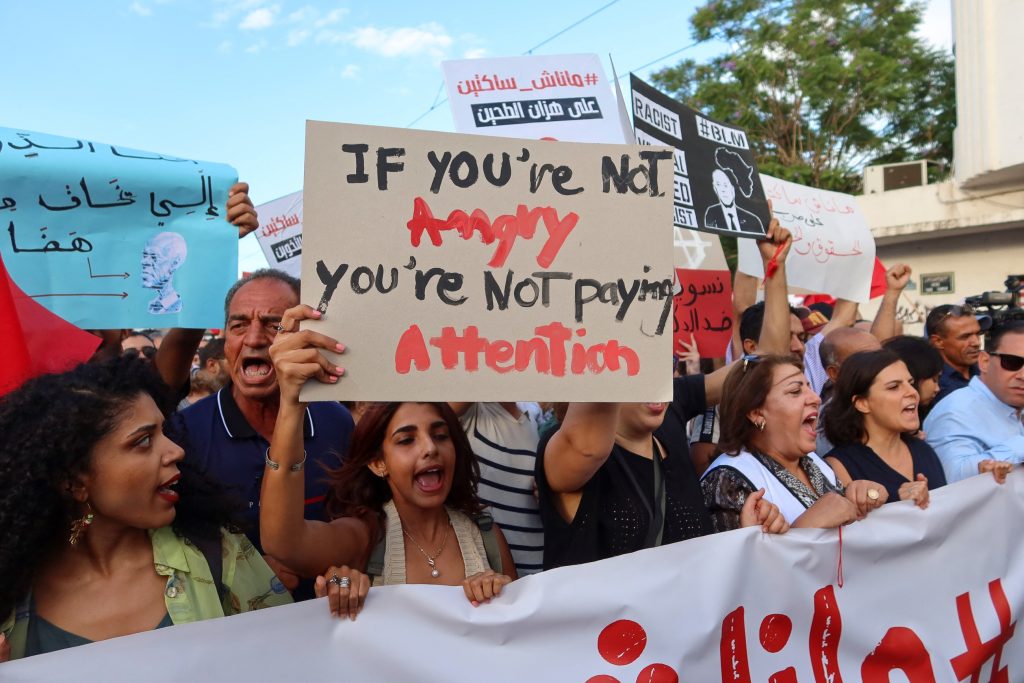In Tunisia, activists and journalists are pushing back against what many perceive as a return to autocracy under President Kais Saied. Despite escalating risks of reprisals from a government increasingly intolerant of dissent, these individuals are committed to advocating for a return to democratic governance.
Saied, who rose to power in October 2019 on a platform of reform and transparency, dissolved parliament in July 2021 and consolidated power, effectively stalling the country’s democratic transition initiated by the 2011 revolution. This move has been widely condemned as a constitutional coup, prompting widespread protests both within Tunisia and abroad.
Since then, Saied has systematically weakened intermediary bodies such as political parties and the judiciary, cracking down on any form of opposition. According to a report by the local independent media outlet Inkyfada, at least 89 individuals—including journalists, lawyers, activists, and political party members—have faced interrogation, arrest, or prosecution since the ‘coup’.

The situation deteriorated further with the introduction of Decree 54 in September 2022, which criminalises the dissemination of “false information” and has been denounced by human rights organisations as a severe infringement on press freedom. Amnesty International has described this decree as one of the harshest measures in over a decade aimed at stifling free expression.
Independent media outlets have become increasingly rare yet crucial for countering state narratives. Press freedom in Tunisia has plummeted since 2021, with the country dropping from 72nd to 118th in Reporters Without Borders’ World Press Freedom Index. The International Commission of Jurists accused the authorities of pushing journalists toward self-censorship.
As the presidential election on 6 October approaches, the Tunisian authorities have intensified their crackdown, recently arresting over 100 members of the main opposition party, Ennahda. Kais Saied has faced accusations from various monitoring organisations, including Human Rights Watch, of attempting to undermine potential candidates to secure his re-election.
In response, a coalition of around 20 NGOs and political parties has formed the “Tunisian Network for the Defence of Rights and Freedoms.” This coalition aims to denounce the restrictions on candidates and voters during this pre-election period and to advocate for free expression in public affairs.
Their first action was a national march in Tunis, where over a thousand Tunisians gathered, chanting slogans that echoed the spirit of the 2011 revolution. Observers viewed the demonstration as a testament to the resilience of opposition voices in Tunisia, signalling that Saied’s efforts to suppress dissent have not entirely succeeded.


